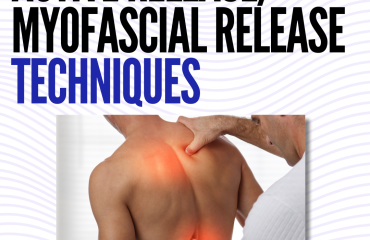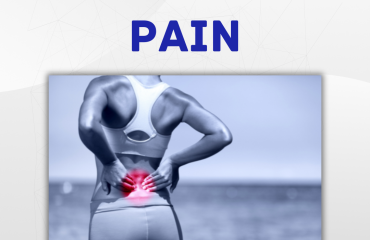Getting to the Truth about Hip Pain
| Have you noticed pain all in the hips? Losing your groove on salsa night? Here is a list of the most common causes of hip pain. |
 |
Types of Hip Pain
- Muscle Strain or Tendonitis
- Repeated activities can put strain on the muscles, tendons, and ligaments that support the hips. When they become inflamed due to overuse, they can cause pain and prevent the hip from working normally. Symptoms include aches, stiffness, and pain in the front or back of the hip when you try to flex your hip while running or kicking.
- Arthritis
- Osteoarthritis (wear and tear arthritis) and rheumatoid arthritis are among the most common causes of hip pain, especially in older adults. Arthritis leads to inflammation of the hip joint and the breakdown of the cartilage that cushions your hip bones. The pain gradually gets worse. People with arthritis also feel stiffness and have reduced range of motion in the hip. Limping while walking is also a common hip complaint.
- Bursitis
- Bursitis is swelling and inflammation of the fluid-filled sacs – the bursae – that cushion and lubricate the joints. Inflammation of a bursa situated between the bony bump on the side of the hip and the tendon that passes over it causes pain and aching in the hip and on the outside of the thigh. It is aggravated with walking or any activity that causes the tendon to move over the bone. You can also experience pain when lying on the affected side of the body.
- Labral Tear
- A hip labral tear is damage to the cartilage that surrounds the socket part in the ball and socket joint of your hip. This occurs as the result of repetitive use of the hip joint, early stages of osteoarthritis or by an injury such as a fall or accident that causes twisting of the joint. Symptoms can be vague and difficult to pinpoint. A labral tear causes pain in the hip and may be accompanied by a clicking sound (with movement). You might experience pain with movements running and jumping.
- Snapping Hip Syndrome
- This condition is characterized by a snapping sensation in the front or side of your hip (with or without an audible noise and pain). Snapping hip syndrome may occur when bands of connective tissue that support the hip thicken and catch as they slide back and forth across the top end of the femur. Snapping hip syndrome may occur in athletes as a result of repetitive, vigorous use and injury.
- Meralgia Paresthetica
- Meralgia paresthetica occurs when a nerve in the front part of your thigh becomes compressed or pinched. This nerve is purely a sensory nerve and doesn’t affect muscle strength. It will cause a change in skin sensation along the outer part of your thigh and will not cross the knee joint. Common causes of this compression include tight clothing or belts, obesity/weight gain, pregnancy or scar tissue around the groin/anterior hip.
Treat It
Just like with shoulder injuries, successful treatment requires an accurate diagnosis. A thorough history and examination IS necessary to determine which structures are involved in your injury. Home treatment methods may be helpful but are not indicative or substitute for a proper diagnosis.
- Soft tissue and/or massage therapy
- These can be active/myofascial release technique, Graston technique and cupping therapy. Soft tissue therapy helps to release tight and/or spastic muscles. You can also work on these muscles at home with a lacrosse ball and/or foam roller.
- Chiropractic adjustments
- Low back adjustments can improve nerve function to the muscles that move the hip. Lower extremity (hip, knee, foot and ankle) adjustments can also be very beneficial in normalizing joint function.
- Physical therapy/exercise rehabilitation
- Physical therapy helps tremendously with pain management, improving range of motion, increasing muscle strength, patient education and functional training. It can also be used to address muscular imbalances or issues with foot and hip biomechanics.
- Acupuncture
- Acupuncture can be used to treat various hip injuries, both acute and chronic. The insertion of tiny, sterile, disposable acupuncture needles allows for a very precise treatment plan that improves blood circulation. Specific acupoints in the body allow muscles to relax when they’re tense, and can also repair damaged fibers in muscles, ligaments, and tendons.
If you feel like your hips are moving more like the tinman than Shakira, be sure to set up an evaluation by of us here by calling (858)888-5775.
Come back next week for more tips about hips!




